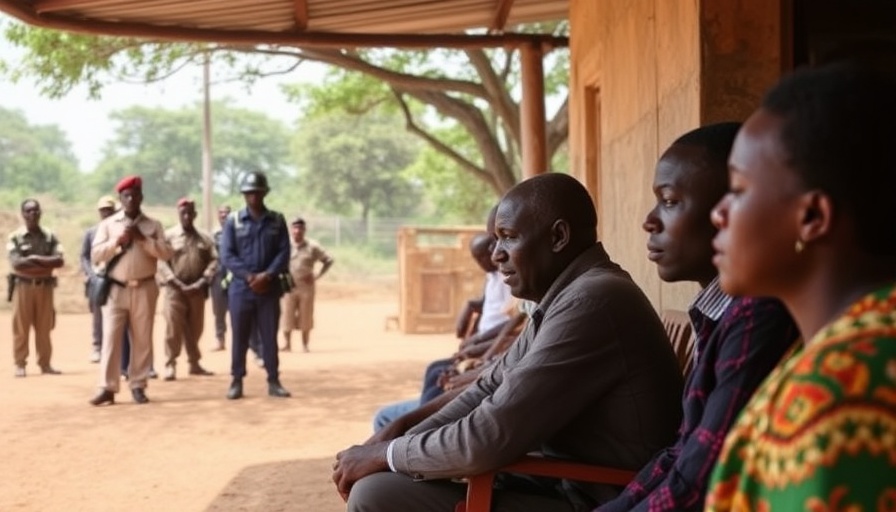
Declining Trust in African Institutions: A Stark Reality
A new Afrobarometer study paints a troubling picture of public trust in Africa, revealing a significant decline over the past decade. Conducted across 39 countries, the findings expose a widening chasm between citizens and their governmental structures, highlighting a marked loss in faith regarding key institutions such as the presidency, judiciary, and police.
Key Findings: Who Do People Trust?
The emphasized trust levels illustrate that only religious and traditional leaders alongside the military still command majority confidence, with 66%, 56%, and 61% trust respectively. Meanwhile, political entities including the presidency, parliament, and police falter below the critical 50% support threshold. This suggests a troubling trend as citizens turn away from state-sanctioned authorities toward more culturally entrenched figures.
A Regional Perspective: Diverse Trust Levels Across Africa
Diving into regional trust dynamics, East and West Africa display higher trust compared to Central and Southern Africa, with nations like Tanzania, Niger, and Burkina Faso leading as the most trusted. Conversely, Gabon, Eswatini, and São Tomé and Príncipe are seen as trust-deficient, showcasing the variation in public sentiment influenced by historical, economic, and political context.
Implications of Diminishing Trust for Governance
This substantial decline poses significant questions about governance and public policy: How can states reclaim credibility? Experts argue that trust isn't merely about the perception of honesty; it is intrinsically linked to effective governance and the delivery of public services. With declining trust, the efficacy of policy-making and enforcement diminishes, complicating intra- and inter-governmental relations.
Future Insights: Foundations for Restoration
As African nations grapple with this trust deficit, the road to restoration hinges on strategic engagement with citizens. Policy shift toward transparency and accountability must become a priority if leaders aim to bridge the gap between governance and the populace. Acknowledging the increasing belief in non-political figures may also provide insights into re-establishing some form of legitimacy to faltering institutions.
In an evolving geopolitical landscape, understanding the intricacies of trust is crucial not just for local governance but for international relations and economic partnership dynamics. For investors and policymakers, these insights are especially vital as they navigate the complex terrains of African economies, politics, and governance.
With such a vital discourse underway, a call for dialogue and action is essential. Understanding these shifts profoundly impacts strategic decisions in governance and investment. We must engage further in discussions around trust in governance, paving the way for a sustainable and prosperous African future.
 Add Row
Add Row  Add
Add 


 Add Row
Add Row  Add
Add 

Write A Comment